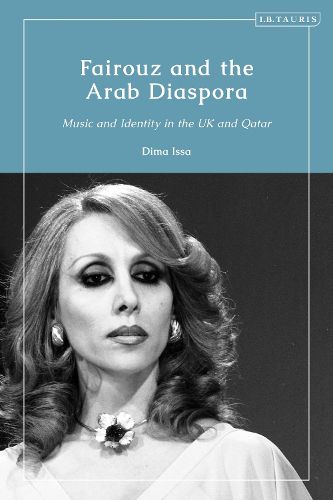Readings Newsletter
Become a Readings Member to make your shopping experience even easier.
Sign in or sign up for free!
You’re not far away from qualifying for FREE standard shipping within Australia
You’ve qualified for FREE standard shipping within Australia
The cart is loading…






With a discography of over 1000 songs, 20 musicals and three motion pictures, the Lebanese singer and performer, Fairouz, is an artist of pan-Arab appeal, who has connected with listeners from diverse backgrounds and geographies for over four often tumultuous decades.
In this book, Dima Issa explores the role of Fairouz's music in creating a sense of Arab identity amidst changing political, economic context. Based on two years of research including 60 interviews, it takes an ethnographic approach, focussing on audience reception of Fairouz's music among the Arab diasporas of London and Doha. It shows that for discussants, talking about Fairouz meant discussing diasporic life, bringing to the surface notions of Arabness and authenticity, presence and absence, naturalization and citizenship, and the issue of gender. Conversations with the research respondents shed light on the idea of iltizam (commitment), or how members of the Arab diaspora hold on to attributes that they feel define and differentiate them from others.
$9.00 standard shipping within Australia
FREE standard shipping within Australia for orders over $100.00
Express & International shipping calculated at checkout
With a discography of over 1000 songs, 20 musicals and three motion pictures, the Lebanese singer and performer, Fairouz, is an artist of pan-Arab appeal, who has connected with listeners from diverse backgrounds and geographies for over four often tumultuous decades.
In this book, Dima Issa explores the role of Fairouz's music in creating a sense of Arab identity amidst changing political, economic context. Based on two years of research including 60 interviews, it takes an ethnographic approach, focussing on audience reception of Fairouz's music among the Arab diasporas of London and Doha. It shows that for discussants, talking about Fairouz meant discussing diasporic life, bringing to the surface notions of Arabness and authenticity, presence and absence, naturalization and citizenship, and the issue of gender. Conversations with the research respondents shed light on the idea of iltizam (commitment), or how members of the Arab diaspora hold on to attributes that they feel define and differentiate them from others.